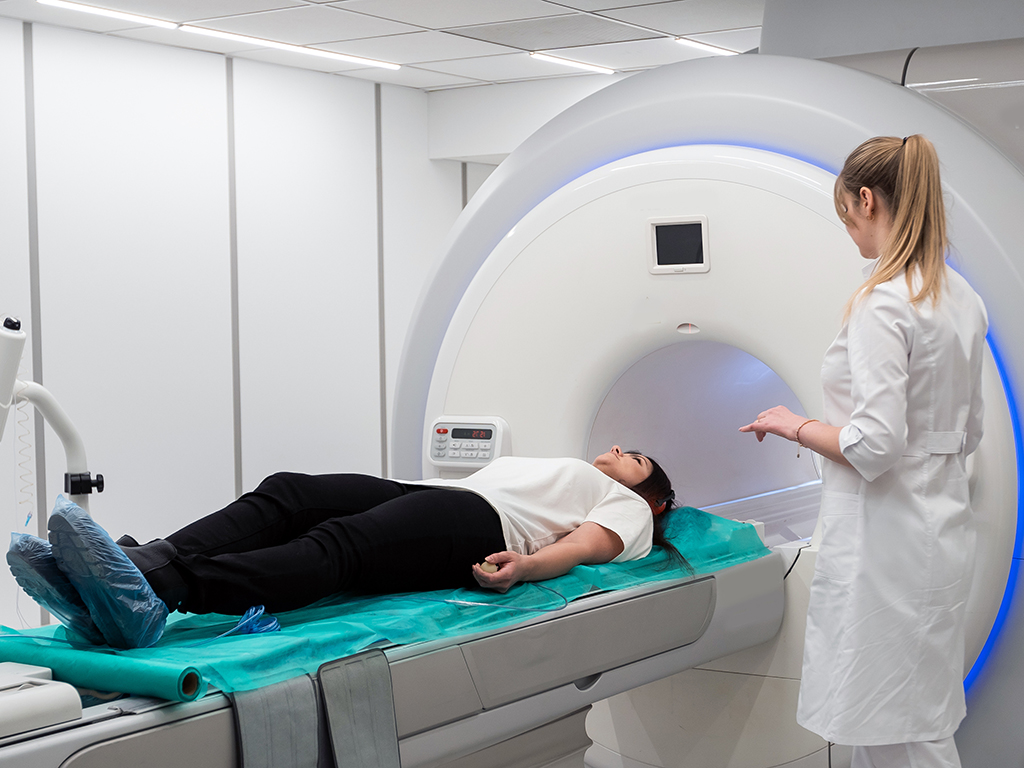Nudges to Increase Supplemental Breast MRI Screening

DESCRIPTION
Breast density, or the amount of fibrous and glandular tissue in breasts compared to fatty tissue, is a common risk factor for breast cancer. Patients with dense breasts are three to five times more susceptible to breast cancer compared to those with fattier breasts. Additionally, dense breast tissue can hide smaller tumors, leading to less accurate mammography results.
According to the European Society for Breast Imaging and the American College of Radiology, women with dense breasts should seek supplemental MRI screening in addition to mammography. Breast MRI screening rates, however, remain low among women and even lower among racial minorities. To increase follow-up breast MRI rates in women with dense breast tissue, this project evaluates the effects of patient- and clinician-directed nudges on the ordering and scheduling of supplemental breast MRIs.
Across four Penn Medicine mammography sites, researchers are identifying patients with extremely dense breasts and randomizing them into four groups. The control group will receive no nudge, while the other groups will receive either a clinician-directed nudge, a patient directed nudge, or a nudge to both the patient and the clinician. Patient nudges will be sent via text messaging and will contain a message encouraging patients to speak with their clinicians about scheduling a breast MRI. Clinician-directed nudges will be embedded as a note within mammogram result reports or as an Electronic Health Record (EHR) message. Outcomes of the study arms will be measured by assessing whether a clinician orders a supplemental breast MRI for their patient or whether a patient schedules a supplemental breast MRI within 6 months of the nudge. At completion, patients will be assessed to identify barriers and facilitators of the study’s implementation strategies.
IMPACT
Findings of this trial will inform affordable, scalable implementation strategies to promote early breast cancer detection. This study also provides the opportunity to determine the effects of nudges overall and to compare effects of clinician-directed nudges and patient-directed nudges. A successful study could provide valuable insights for conducting broader trials aimed at integrating behavioral economics and implementation strategies across various health systems to enhance the utilization of supplemental breast MRIs.
FUNDING
PEOPLE
Anne Marie McCarthy; David Asch; Anna-Marika Bauer; Rinad Beidas; Justin Bekelman; Daniel Blumenthal; Alison Buttenheim; Emily Conant; Abigail Doucette; Sarah Ehsan; Oluwadamilola Fayanju; Peter Gabriel; Tracy Gionta; Carmen Guerra; Steven Hyland; Elizabeth Mack; Linda Nunes; Claudia Fernandez Perez; Martina Plag; Katharine Rendle; Robert Schnoll; Rachel Shelton; Lawrence Shulman; Sue Ware; Bernadette Wheeler; E. Paul Wileyto
FOCUS
Clinical Transformation